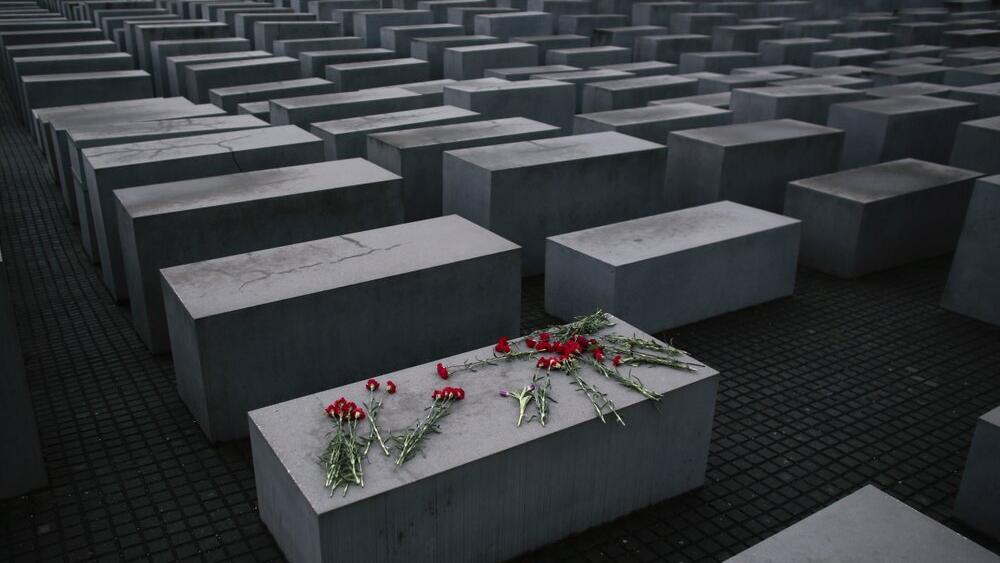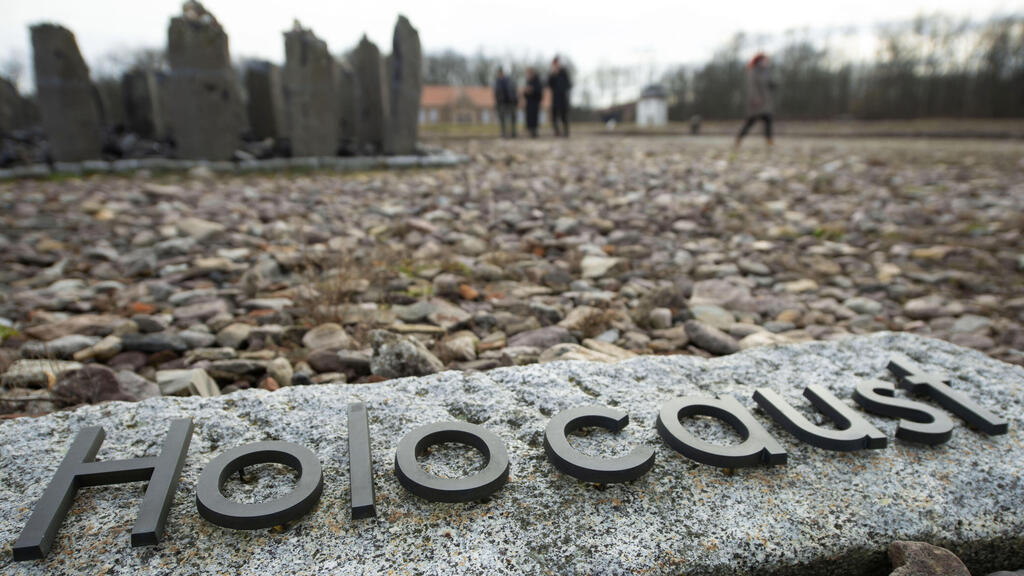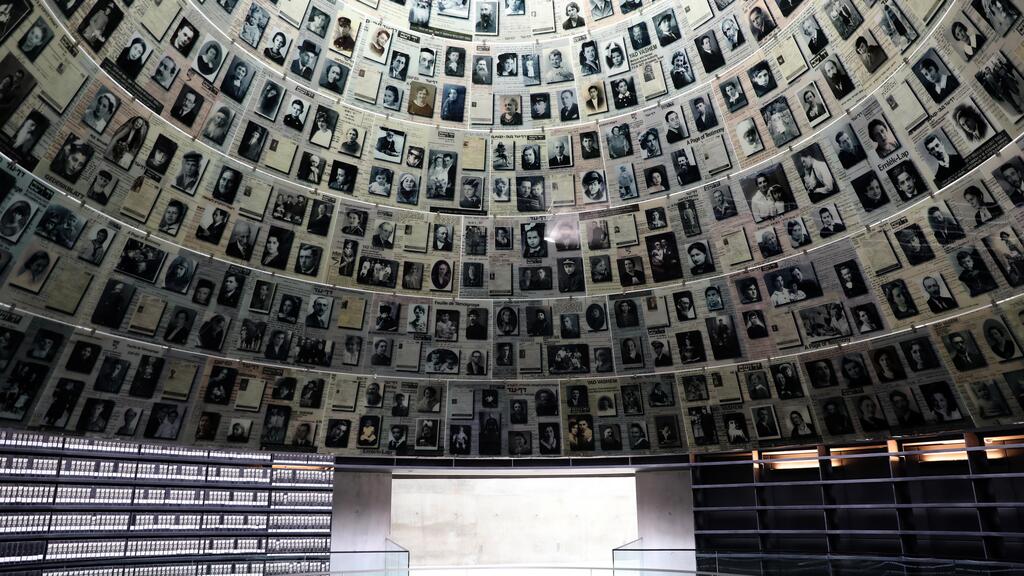Getting your Trinity Audio player ready...
This week, the world pauses on January 27, the date that the Auschwitz concentration camp was liberated in 1945, to mark International Holocaust Remembrance Day.
There was recently another equally significant anniversary that should never be forgotten: January 20 marked 80 years to the Wannsee Conference - when 15 German state secretaries and senior SS officials sat around a large table in a suburb of Berlin and, in 90 minutes over drinks, unanimously voted to mass murder every Jew in Europe.
8 View gallery


The 'Haus der Wannseekonferenz' (House of the Wannsee Conference) pictured in Berlin, Germany
(Photo: AP)
There is much to ponder about Wannsee in 2022, especially when anti-Semitic hate crimes rage in Berlin, London, and New York.
The appropriate context can only be provided by the Last Will and Testament of the mass-murderer-of-Jews-in-chief, himself, Adolf Hitler.
“It is untrue that I or anybody else in Germany wanted war in 1939. … But nor have I left any doubt that if the nations of Europe are once more to be treated only as collections of stocks and shares of these international conspirators in money and finance, then those who carry the real guilt for the murderous struggle, this people will also be held responsible: the Jews!"
8 View gallery
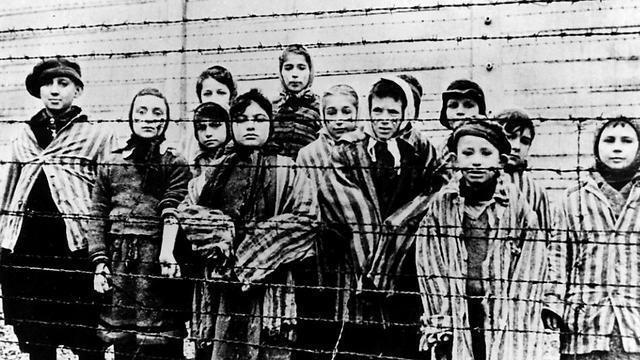

An image of child prisoners taken at the Auschwitz death camp in Poland by liberating Soviet forces in 1945
(Photo: AP)
Much has been made about the fact that throughout the 1930s, Hitler mesmerized millions of Germans with the fervor of his promise to make Germany an unmatched power. The fuehrer, however powerful, could not fulfill his genocidal vision of a Judenrein Europe alone.
At a secret meeting on the shores of beautiful Lake Wannsee, just outside of Berlin, the Wannsee Conference took place on Jan. 20, 1942.
Reinhard Heydrich, deputy SS chief and head of the Reich Security Main Office, summoned the state secretaries of Germany’s most important ministries to coordinate their participation in achieving the “Final Solution” to the “Jewish problem.” Better methods had to be implemented.
8 View gallery
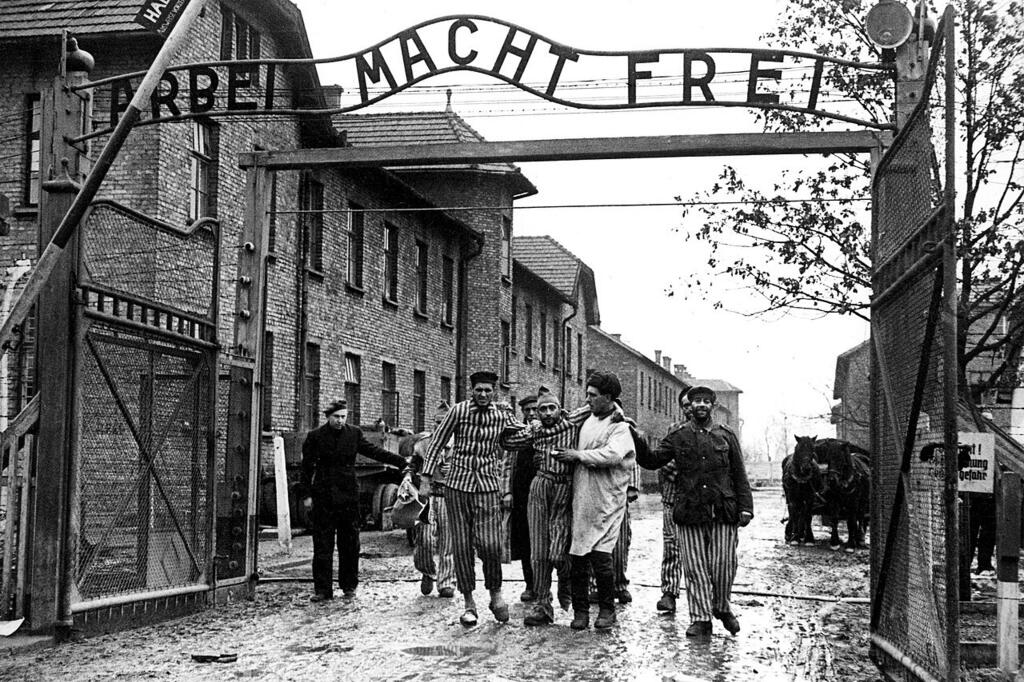

Soviet soldiers liberating the Auschwitz concentration camp in Poland
(Photo: Getty Images)
The participants around the table were no ordinary thugs. Most had attended Germany’s most respected schools and universities. Eight of the 15 invitees held doctorates. Some came from religious Christian homes.
And while they knew that hundreds of thousands of Jews were being executed en masse in occupied USSR, Heydrich left little doubt that Hitler had ordered a Final Solution to the Jewish problem – meaning all of Europe’s Jews were to be annihilated.
Heydrich convened the meeting to involve Germany’s government ministries to help to carry out genocide rapidly and efficiently.
8 View gallery
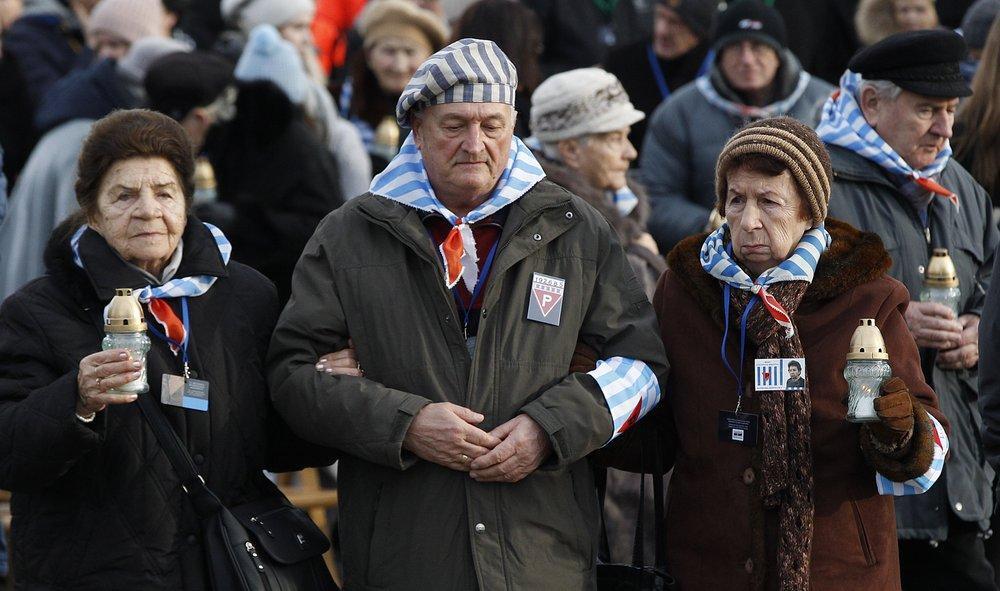

Survivors of the Auschwitz death camp arrive for a commemoration ceremony on International Holocaust Remembrance Day 2021, at Auschwitz-Birkenau in Oswiecim, Poland
(Photo: AP)
He had expected opposition from some attendees. But according to Holocaust organizer Adolf Eichmann, who was present, Heydrich found an “unexpected air of agreement.”
Rather than expressing concerns or outright opposition, the eight doctors of law and philosophy in attendance expressed enthusiasm about being included in the plan.
At his trial in Jerusalem many years later, Eichmann testified, “These gentlemen were sitting together and minced no words about it. … They spoke about methods of killing the Jews, about murder, liquidation … about extermination.” Gassing Jews drew particular interest.
For European Jewry, the Wannsee Conference was its death warrant. For history, Wannsee provided proof that the Shoah may have been the vision of one man, but it was embraced and carried out by the German government and all who marched in lockstep with Hitler’s vision, including bureaucracies who never fired a gun in anger.
Their skill sets were key to unleashing genocide.
The summary of the conference – the Wannsee Protocol – is the only document in history codifying genocide as official state policy.
The Wannsee Conference took fewer than 90 minutes to devise a plan to wipe out the entire Jewish population in Europe. It took place not in some backwater but in the world’s most culturally, technologically, and scientifically advanced society.
Eighty years later, each of us should read and ponder the Wannsee Protocol.
Never again should anyone confuse an advanced education with morality. Some of Germany’s most educated enthusiastically followed Hitler; today there are too many educated people prepared to forge strategies legitimizing crimes in the name of a greater good.
Never again should leaders turn a blind eye to today’s evils unleashed against innocents in China or Iran with the hope that somehow catering to tyrants will work out for the best. That didn’t work for Neville Chamberlain and it won’t work now.
Germany will always have special obligations linked to Wannsee: First and foremost. It must never harm Jews.
In word and deed, Germany in 2022 must be guided by the International Holocaust Remembrance Alliance definition of anti-Semitism. Today’s Germany should take all necessary measures to hold accountable all perpetrators and purveyors of anti-Semitism at home.
8 View gallery
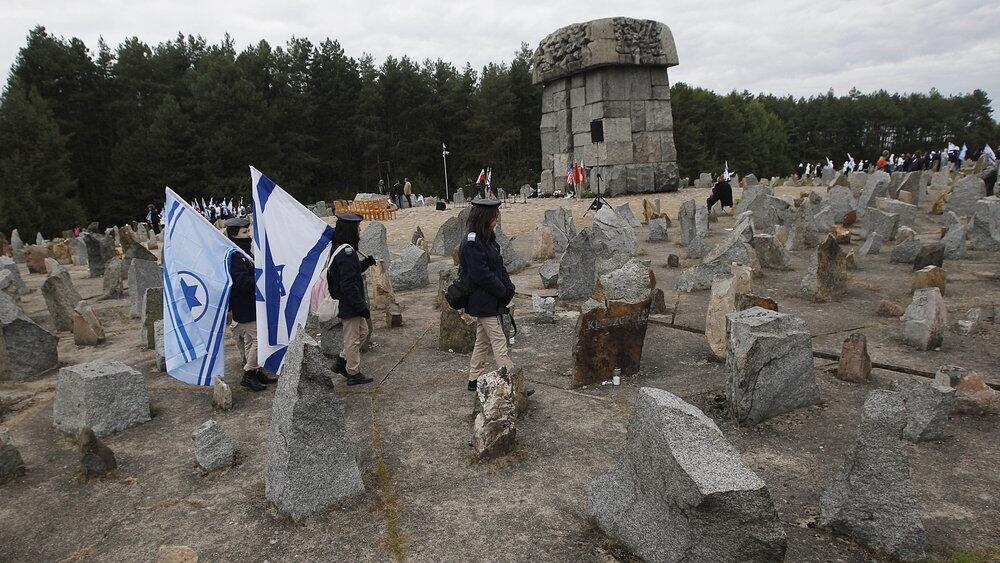

The monument to some 900,000 European Jews killed by the Nazis between 1941 and 1944 at the Treblinka death camp, Poland
(Photo: AP)
It must take the public lead against all Holocaust denial and distortion, on social media and in the halls of power and diplomacy.
Nowhere is such a commitment as needed and sorely lacking as when it comes to Germany’s continuous pursuit of economic gain in Iran.
That is the only way to explain Berlin’s deafening silence as Iran’s supreme leader, Ayatollah Ali Khamenei Khamenei, and his human-rights-crushing regime pursue Holocaust denial as state policy and Iran’s top leadership threatens to destroy Israel – home to over 6 million living, thriving Jews.
The German president can put an end to Iran’s Holocaust denial by inviting the ayatollah and his new president to visit Wannsee along with Dachau, Buchenwald, or Sachsenhausen concentration camps.
We Jews and, we believe, millions of Germans have learned the hard way that words have consequences, and that we must take tyrants at their word.
We can only pray that Germany’s new leaders along with the U.S., UK, and France will pause in these days between January 20 and January 27 to study the Wannsee Protocol. It might just save humankind from the next “unthinkable” catastrophe.
Op-Ed written by Rabbi Marvin Hier and Rabbi Abraham Cooper, republished with permission from The Media Line


